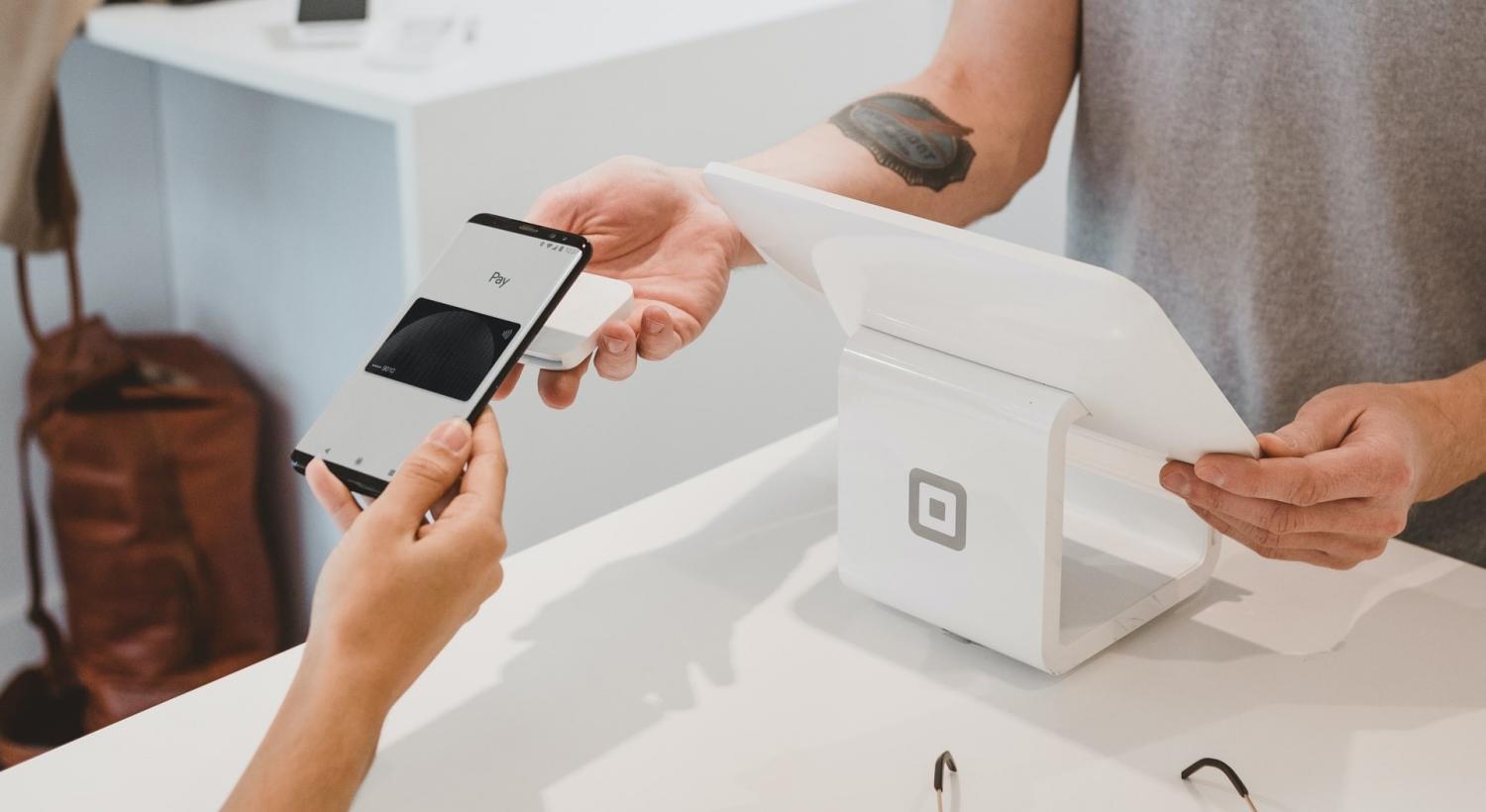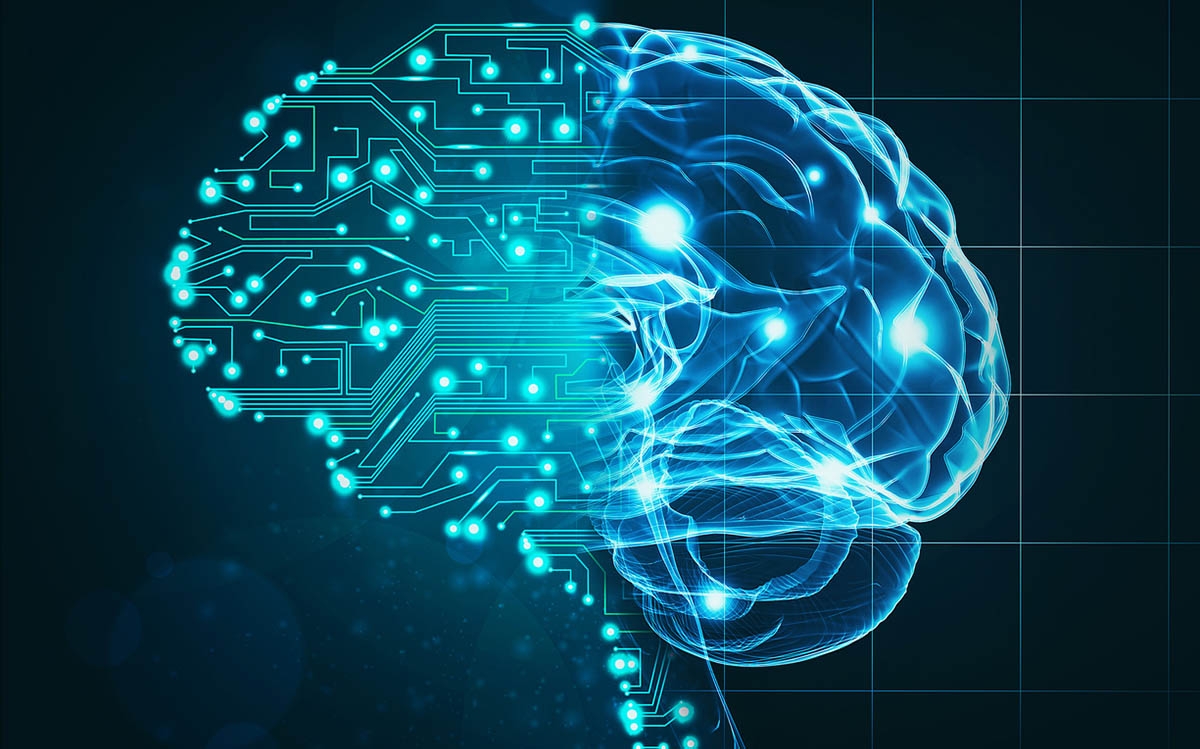
7 unlikely jobs that might be replaced by machines?
The conversation topic of robots taking over a good percentage of the jobs on the market has become more and more common considering the unrelenting progress in technology and all the innovative devices that help make life easier at home (and not only, because if we're looking as far back as 2016, the number of robots used in industries was surpassed by that of those used in homes, hospitals, supermarkets, etc.). Even if there is a good possibility of this being true, it won't happen overnight and definitely not with jobs that require finer interpersonal skills. We are still a long way from the types of robots seen in movies like I, Robot, The Terminator, Wall-E, or Robocop, as artificial intelligence hasn't yet been perfected and can't be applied universally.
However, there are a few types of jobs that could be replaced by machines out of convenience rather than need, and we will be enumerating them shortly. But before doing that, we'll detail a bit on what artificial intelligence is and what types exist.
What is Artificial Intelligence?
Artificial Intelligence (AI) is the answer to Alan Turing's initial question that wonders if machines can think. Over the last decades, plenty of scientists have put work in to prove that the answer can be positive, and that, in one way or another, machines can think for themselves when performing certain tasks. Therefore, a simple way of putting it, AI is something that helps machines simulate human intellect (not to be mistaken for intelligence, although steps are being made in that direction) and is often combined with repetitive movements, making a robot better than a human at performing specific and repeated tasks.
The types of AI that are in use:
- Reactive: When you're looking at a reactive robot, you're looking at the most basic type. What it does is quite obvious from its name, and that is having a predictable operation as a reaction based on repeated past experiences. The operations are not too complex and other than the inputs that shape its reaction, it cannot create memories. (e.g. AI robotic arm used for chess games
- Limited memory: This type is the one that has a certain input on how it should work and can use it to form predictions on how to react in the future. The best example that is the most relevant is self-driving cars. They can use the information they're built with to make accurate movements in traffic, avoiding accidents.
The types of AI that are not in use:
- Theory of mind (ToM): ToM is a type that is still a work-in-progress. Once perfected it should be able to recognize and understand emotion, this way being able to tailor their actions accordingly. It will also have emotions and be able to form its own thoughts.
- Self-aware: The second AI that is not in use is probably decades away from the first successful prototype. Self-aware AI will be able to function as a human would by continuously developing its intelligence and acting of its own accord. Some say that this type will have a high probability of being much smarter than humans.
Some examples of AI that we see daily:
- Most smartphone features (Face recognition, GPS, etc.)
- Smart Assistants (Google, Siri, Alexa)
- Chatbots
- Spam e-mail filters
- Recommendations made by streaming services
- Automatic cars
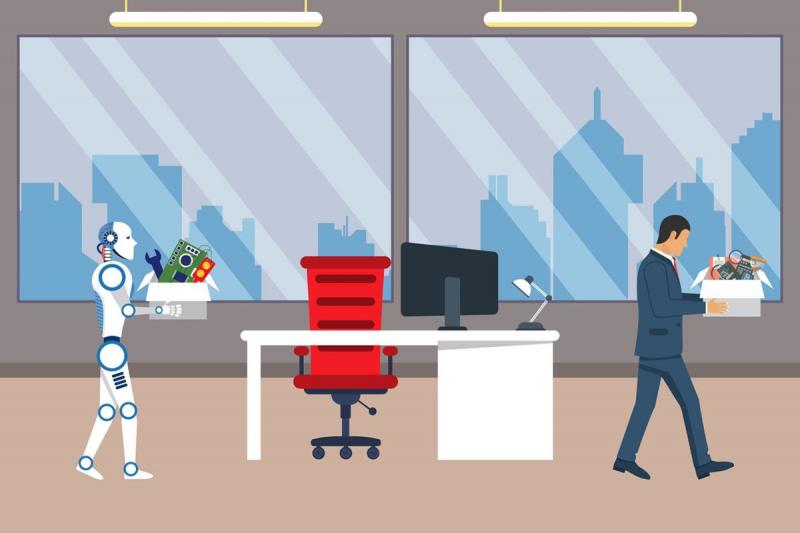
Will machines be able to replace humans in certain lines of work?
Although plenty of machines have been engineered to take some household chores off your hands, they could also be used on a wider scale, working with or replacing the need for human employees. Emphasis on the word could because in most cases employers would benefit more from paying salaries rather than purchasing a large number of machines. Technology isn't performant enough yet, and most robots can only do their tasks in a preset time period. And they also lack the social skills that might be needed to help customers.
Here are 7 examples of jobs that could be fully automated once the performance of machines will be at a high enough level:
1. Cleaners
House:
Some of the chores for which you would have to employ a professional cleaner could be solved with the use of an automated machine. Vacuuming and mopping have already been taken over by the ever so popular compact cleaning devices that can save you the backache and be programmed to map your entire home.
Pool:
If you happen to have a pool, you know just how much time it takes to maintain it. Covering it up during rainy or windy weather, testing the water to check its balance, adding in the right chemicals, and so on. But keeping your pool water sparkling can cause quite the inconvenience for the environment, as too much chemical-saturated water can be harmful when drained. A way in which you could save both the environment and money from your wallet, since filling up a pool or constantly hiring help is going to be costly, is by using robotic pool cleaners. Those can save you from endless scrubbing hours, sore hands and back, and maybe even an accidental fall into the pool. You can have them map out your pool to get every nook and cranny, scrub the walls until no more spots are visible(even stair and waterlines with some models), dislodge debris and algae, and most importantly, vacuum the whole floor afterward, all this requiring only a few taps on a remote. A cleaner pool means cleaner water, and cleaner water means fewer chemicals added.
Yard:
These types of helpers have also extended to yard work, as gutter cleaning and lawn mowing can be a chore of the past with just a few presses of a button. You can sit back and relax and all the extra leaves and grass growth will be cleared in just a few hours.
All of the reasons above make up the ‚why‘ of professional cleaning becoming a job of the past.These robots could also be used in the hotel industry, but as we mentioned, the time limit would be a problem, as machines don't understand the concept of urgency and can't pick up the pace if needed. Situations in which these might be a viable option are those where contamination is involved (pandemics, for example) and human cleaners would be facing serious risks of infection, whereas robots would have no problem disinfecting and cleaning every area.
2. Couriers
The industrial packaging lines have been overrun by AI already, which means that the job of transporting and delivering packages might also be taken over, as drones and self-driving cars are becoming more and more reliable. And if the current situation with the pandemic were to happen again, they would be a safer option.
3. Retail
There could be a few reasons that could turn retail into an automated field, and those have to do with a growing online customer presence (also because of the pandemic) and with faster service. A machine could have stocked information on how many pieces from a certain item are left, the size/color/version available, the price in case it's not immediately obvious on the shelf, and it could even show recommendations based on a customer's pattern.
4. Servers
A part of the food industry is currently dabbling in the AI world, but some places are 100% based on self-service when it comes to the serving part. Big fast food chains (like McDonald's) have gone with installing machines with the help of which you can choose your meal and place your order, and the only part of the process when you'll have to interact with a human is when the order is ready and you have to pick it up.
With the release of robots like Bot Handy from Samsung, things are taken one step further. Your waiter might not be human in a few years (at least in really fancy places that can afford these robots), since this robot already has the ability to use electric wine openers to open bottles in a fully automatized process that is impressive if you think about it. Astonishingly enough, it doesn’t end here since it can even pour you a glass of wine, so the scenario where we will have robot waiters is not that far in the future.
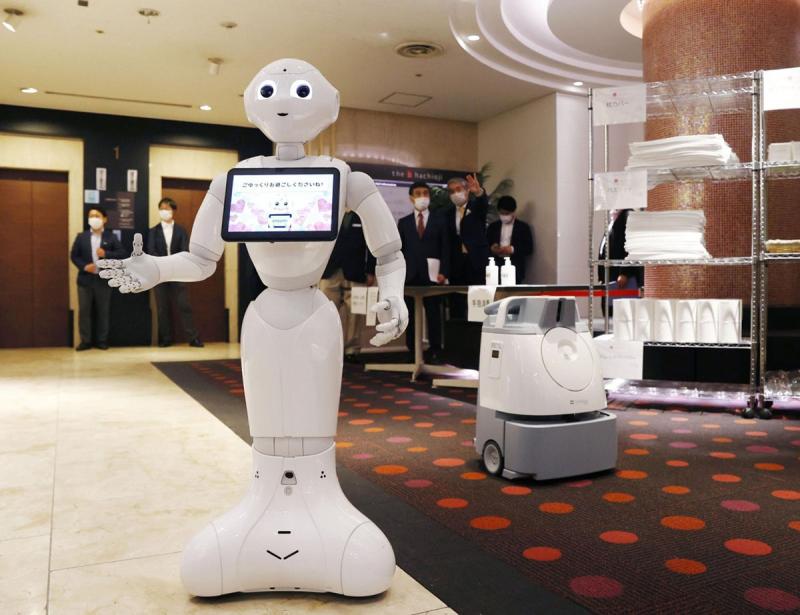
5. Receptionists
We already have auto check-ins, especially with AirBnBs, so if it weren't for the still strong need for human interaction, the receptionist job would probably be obsolete by now. Robots are currently undergoing updates to be programmed to answer phone calls and in turn call customers to confirm check-in and check-out dates, cancellations, and other standard requests. For some, this might seem unnatural, while for others, a human-free experience is the preferred option.
6. Cashiers
If you've been to any supermarkets lately, you might've noticed that self-check-out stations have become customary. To ease the transition, some have a cashier there to help scan your objects, but there are also stations that you are supposed to use by yourself 100%. Therefore, this job will probably switch to being fully automated in places with a bigger volume, whereas smaller stores might choose to hold on to their employees.
7. Security guards
There already are quite a few AI machines that are focused on security, like camera and microphone intercoms for face and speech recognition, upgraded CCTV, home security systems, and so on. So, who's to say that in a few decades there won't be actual robot security guards available to keep you safe at all times?
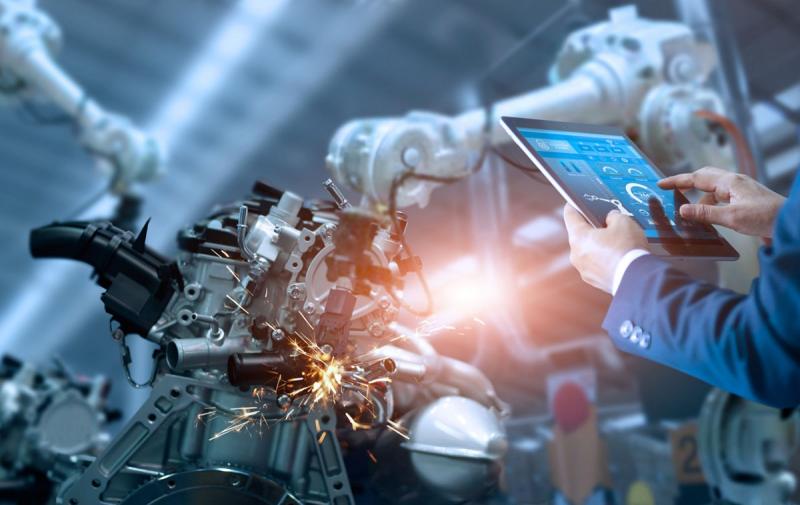
Why is automation a possibility?
There are a few reasonable arguments that can explain the 'why' of automation, namely:
- Productivity improvements
- Larger global reach
- Quicker and easier communication
- Less to no paperwork
- Enhanced soft skills
And here are some examples of fields in which AI is doing a remarkable job:
- Autonomous Flying
- Manufacturing and Production
- Agriculture and Farming
- Customer Service
- Inventory and Stock
To draw the line
While the future might be strongly inclined towards the automation of anything and everything possible, it probably won't be happening as fast as some say. AI technology is still under constant improvement work and it will continue to be for at least one more decade. So, for now, the jobs that are prone to this change are the ones that imply repetitive and predictable tasks.




